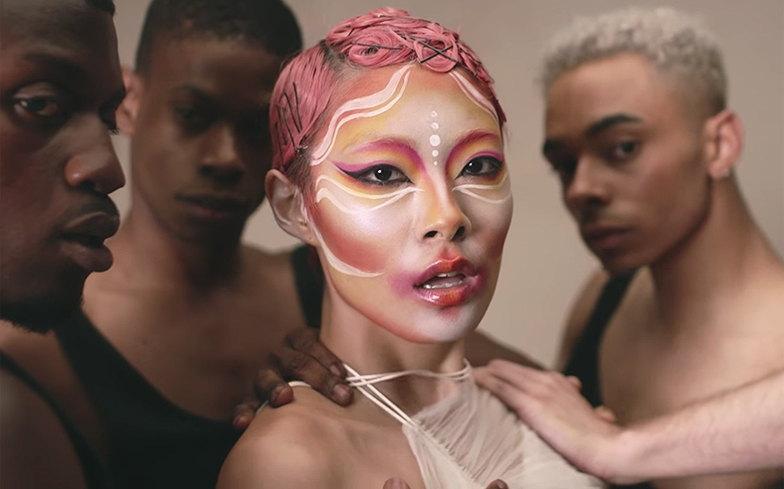Photo courtesy of The FADER
Perhaps Rina Sawayama’s studies of politics, psychology and sociology in college encouraged her to make music that magnifies the marginalized person’s experience in the world, or maybe it was the fact that Sawayama has many identities herself. Regardless of the assumptions, the Japanese-born singer-songwriter has made these issues pertinent to many of her fans.
Story by Miles Eackles
Earlier this year, Sawayama released single “Cherry” from her upcoming untitled debut album. Shedding light on bisexuality and pansexuality, Sawayama wanted to make sure the message in the song was accurate and representative of the bi/pan community. “I didn’t want to further stigmatize the bi or pan community, or queer people in general,” Sawayama said in an interview for Billboard. “But the messages I got from fans, and from people saying they came out because of me, it’s all very emotional.”
Photo courtesy of Gay Times
Bisexual and pansexual people often face invalidation from both the heterosexual and homosexual community for not “making up their mind” and being “greedy.” Often, many people are hesitant to date such people who inhabit this identity due to the anxiety of their partner cheating on them with someone of the opposite sex. According to a study in the Journal of Bisexuality, “gays and lesbians had nearly identical prejudice against bisexuals as heterosexuals.” In the upbeat track “Cherry,” the often ignored and stigmatized group in the LGBTQ community is given recognition and validated.
Sawayama did not stop with “Cherry.” Her most recent single, “Flicker,” is an ode to individuals with atypical names and how these names can place them at a disadvantage. However, from a macro perspective, the song can be interpreted as an empowerment anthem for people whose identities are disregarded. According to Rolling Stone, Sawayama found inspiration for the song from a teacher who butchered her name in grade school. “When I was writing “Flicker” I was thinking how our names shape our experiences in life and identities in a deeper way than we realize,” Sawayama said. With lyrics like, “They flicker, flicker flicker/But nobody gonna shine like us,” the song uses illuminating imagery to praise individuality. The tune pays tribute to ‘90s pop, but unlike earlier works, Sawayama uses her lower register for most of the song. Sawayama took to Twitter to cast people with “abnormal” names in the upcoming “Flicker” video.
Photo courtesy of DIY Mag
Many students at the University of Texas at Austin also feel like their names set them back from certain opportunities. Radio-Television-Film sophomore N’Khya Khalid Salahuddin, like Sawayama, learned to appreciate the uniqueness of her name. “My whole entire family said they struggled with it, but I actually like it,” Salahuddin said. “It’s interesting, but being constantly looked at and questioned is annoying. I couldn’t get a job until after high school graduation. I think it’s cute and a lot of other people do too. It reminds me that I’m really unique and different even though I’m ostracized for it.”
Proven by her lyricism and childhood experiences, Sawayama is one of the few artists today that truly cares about the validity of her fan’s identities. Though it takes a village to actually institute change, Sawayama is using her platform to at least start a conversation on these issues.













































